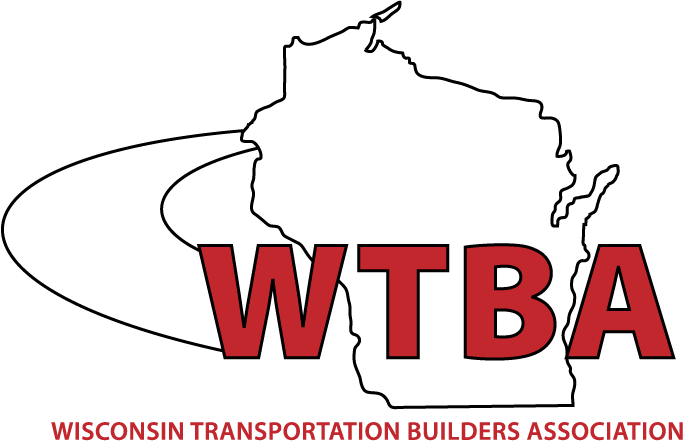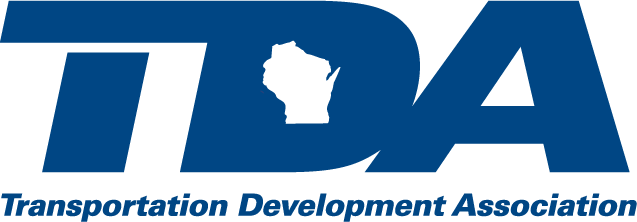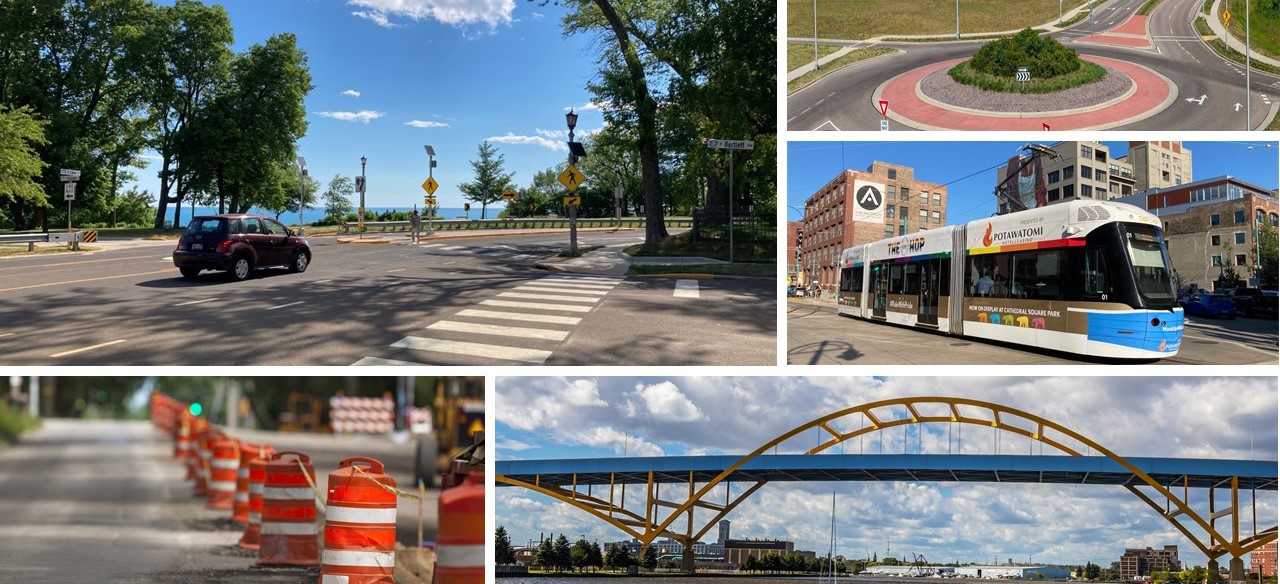Co-hosts:
Institute for Physical Infrastructure and Transportation
Wisconsin Department of Transportation
Friday, October 8, 2021 – 8:00 am to 3:00 pm
UWM Student Union – Wisconsin Room
2200 E. Kenwood Ave.
- Bringing academics, students and practitioners together to network and share information on topics of interest to transportation professionals in southeastern Wisconsin and beyond.
- Showcasing practical applications of transportation related academic research.
- Providing an opportunity for Wisconsin DOT and other presenters to share their innovative practices with the broader transportation community
- Register early for this free event.
- Registration for the symposium is closed. For more information, contact Mark Gottlieb at markgott@uwm.edu
Schedule
| 8:00 – 8:30 | Registration and Continental Breakfast |
| 8:30 – 9:00 | Welcoming Remarks Brett Peters, Dean, UWM College of Engineering & Applied Science Paul Hammer, Deputy Secretary, Wisconsin Department of Transportation Xiao Qin, Director, UWM Institute for Physical Infrastructure and Transportation |
| 9:00 – 9:45 | Plenary Session Keynote Speaker – Dr. Firas Ibrahim, Director, Office of Research, Development and Technology, United States Department of Transportation |
| 9:45 – 10:00 | Break and Networking |
| 10:00 – 12:00 | Breakout Sessions 1-4 |
| 12:00 – 12:45 | Box Lunch with Speaker (WisDOT Secretary Craig Thompson) |
| 1:00 – 3:00 | Breakout Sessions 5-7 |
| 3:00 | Wrap-up, attendee evaluations and closing remarks |
For More Information
Mark Gottlieb
markgott@uwm.edu
414-828-9846
markgott@uwm.edu
414-828-9846
Lead Sponsors



Supporting Sponsors




Speaker Biographies
Breakout Sessions
Research #1 (Infrastructure/Operations) 10:00 am – 11:45 am Moderator: Michael Schrader, UWM
Academic research in materials, construction and highway operations
| Topic | Presenter |
|---|---|
| Using Drones to Determine Site Elevation Quickly and accurately estimating elevations of a construction site in real time is a challenge. Researchers at Marquette University developed a deep learning model for estimating construction site elevations using a drone-based orthoimage. The success of their research project has advanced the drone-based orthoimaging method in construction site surveying, which can automatically identify the static obstacles and determine the ground elevations more quickly and accurately. | Yong Bai and Yuhan Jiang (Marquette University) |
| Concrete Durability Research and Solutions Concrete used in transportation infrastructure needs a delicate proportioning of the mixture to maintain the expected workability and mechanical performance, and to ensure long-term durability in the field. Classical concrete mix design includes the optimization of aggregates and supplementary cementitious materials, as well as fine-tuning of the types and dosage of chemical and air-entraining admixtures. Despite universal utilization and extensive research, most modern concrete applications are based on relatively dated technology, requiring massive inputs of raw materials, and resulting in bulky designs. The next generation of concrete can be developed to boost performance, and reduce embodied carbon and waste, delivering a product with high lifecycle durability, while also being energy and labor-efficient, rapidly deployable, economical, and less dependent on natural resources than existing concrete. Future concrete can be developed using nano-engineering; multi-scale modeling, machine learning, artificial intelligence, and ultimately, digital manufacturing and “smart” sensor-embedded construction. With hundreds of billions in infrastructure upgrades and R&D being added to the federal budget over the next eight years, there has never been a better time to improve contemporary materials and practices, nor to invest in advancing concrete construction technology. | Konstantin Sobolev (UWM) |
| Wisconsin Oversize-Overweight Truck Route Evaluation With continuing increases in the number of Oversize-Overweight (OSOW) vehicle permits issued in recent years, the management and analysis of OSOW permit data is becoming more inefficient and time-consuming. Large quantities of archived OSOW permit data are held by Departments of Transportation (DOTs) across the United States, and manual extraction and analysis of this data requires significant effort. In this paper, the authors developed OSOW database of single trip permit truck records for Wisconsin DOT and provided an online portal for data access and visualization. Furthermore, the authors investigated the impacts of overweight (OW) permit truck traffic on flexible pavement performance in Wisconsin using field investigation and analyses of the pavement information data. Several Wisconsin highways with heavy OSOW traffic were selected for investigation and assessment of pavement damage. The research included field work (traffic counts and visual pavement surface distress surveys) as well pavement performance and damage analyses from pavement information system data. | Hani Titi (UWM) |
Research #2 (Sustainability and Safety) 1:00 pm to 2:45 pm Moderator: Xiao Qin, UWM
Research and implementation in environmental sustainability and traffic safety
| Topic | Presenter |
|---|---|
| Embodied Carbon Emissions and Implications for Infrastructure Projects Modern infrastructure is a major contributor to anthropogenic carbon emissions. To limit the impact of climate change, drastic actions need to be taken in the next 10-30 years to reduce net carbon emission down to zero. These actions will impact all industrial sectors, including cement and steel manufacturing that have direct implications on the construction of physical infrastructure. This talk will discuss embodied carbon emissions in infrastructure projects, carbon emission mitigation methods for construction materials manufacturing, and potential impacts of these mitigation strategies on infrastructure projects. | Bu Wang (UW-Madison) |
| Implementation of Complete Streets in the City of Milwaukee A complete street is a transportation facility that is planned, designed, operated, and maintained to provide safe mobility for all users, including bicyclists, pedestrians, transit vehicles, truckers, and motorists. This presentation will focus on how the City of Milwaukee has adopted and implemented a “Complete Streets” policy. | Jeff Polenske (City of Milwaukee) |
| Exposure Data to Improve Pedestrian Safety: WisDOT SE Region Pilot Study This presentation will describe results from a study conducted by UW-Milwaukee for the Wisconsin Department of Transportation (WisDOT) Bureau of Transportation Safety to improve pedestrian exposure data and analysis in the seven-county WisDOT Southeast Region. The two main research products were an intersection pedestrian crossing volume model and a multi-use trail crossing safety performance function. The presentation will focus on practical applications of the research, particularly for safety analysis. | Robert Schneider (UWM) |
Innovative Projects and Practices 10:00 am to 11:45 am Moderator: Casey Newman, WisDOT
Showcasing new and innovative practices
| Topic | Presenter |
|---|---|
| Alternative Contract Delivery – Design Build at Wisconsin DOT An overview of the development of the design-build program at WisDOT, as well as updates on the current state of the program and what we are doing as we move closer to the first design-build projects at WisDOT. | Beth Cannestra and Ben Thompson (WisDOT) |
| Multi-modal Design: North 87th Street reconstruction project The North 87th Street reconstruction project is a multi-modal upgrade for the eastern portion of the MRMC campus. The existing roadway had not been changed significantly in over 30 years, and in that time the number of patients/visitors to campus has more than tripled. Over 7,000 parking spaces now use the 0.5 mile project corridor. The North 87th Street project is a major investment by the campus; not only will it facilitate traffic flow, but it will improve the experience for non-vehicular users with protected bike lanes, widened sidewalks, and safe signalized crossings. Innovative raised / separated bike lanes, bike boxes at major intersections and green skid resistant pavement markings are all being provided to promote bicycling to the campus. | Andre Ost (Graef), Mark Geronime (MRMC) |
| Madison Beltline Flex Lanes WisDOT SW Region will be reconstructing a portion of the Madison Beltline in 2021 and will reconfigure the existing right of way to include a dynamic part-time shoulder use concept, labeled the Flex Lane. The ‘Flex Lane’ concept reconfigures the travel lanes to provide a wider inside shoulder that is striped for use by drivers based on overhead dynamic signing. Various design, operations and maintenance considerations went into the Flex Lane project; from reducing shoulder ponding and detailed construction staging to implementing new traffic control procedures with the Traffic Management Center. | Nick Bennett, Jerry Shadewald (HNTB), Brenda Schoenfeld (WisDOT), Luke Holman (Strand) |
Planning 10:00 am to 11:45 am Moderator: Mark Gottlieb, IPIT
Regional and statewide transportation planning and public engagement
| Topics | Presenter |
|---|---|
| Updating the Regional Land Use and Transportation Plan for SE Wisconsin – Challenges and Opportunities Southeastern Wisconsin’s regional land use and transportation plan—VISION 2050—was developed to provide long-term guidance to State agencies and local governments on the future of the Region. In a changing world, including changes due to COVID-19, climate change, and technological advancements, how can long-range plans respond to and prepare the Region for these impacts? | Kevin Muhs (SEWRPC) |
| Connect 2050 – Wisconsin’s Comprehensive Statewide Transportation Plan The presentation will focus on what Connect 2050 is and what makes it different from past long range plans previously prepared by the Wisconsin Department of Transportation (WisDOT). Connect 2050 is a vision plan that looks forward over the next approximately 30 years. It sets the stage for future updates to other modal plans and policy documents within the Department. | Charles Wade (WisDOT) |
| Innovative and web-based engagement strategies that are being used to involve citizens and transportation stakeholders An overview of the public engagement strategies used for WisDOT’s Connect 2050 long range plan update and how they adapted to focus primarily on web-based engagement due to the COVID-19 pandemic. This session will preview the range of online tools and techniques that were used to ask Wisconsinite’s about the future of transportation, and lessons learned. | Alex Gramovot (WisDOT), Carolyn Seboe (HNTB) |
Policy and Finance 10:00 am to 11:45 am Moderator: Paul Hammer, WisDOT
Developments in state and federal transportation finance
| Topic | Presenter |
|---|---|
| Federal Surface Transportation Reauthorization An update on the status of Federal Surface Transportation Reauthorization as well as other Federal Transportation Infrastructure funding proposals. | Glen Fulkerson (FHWA – Wisconsin Division) |
| Mileage Based User Fees Congress has authorized more than $100 million for states to pilot mileage-based use fee systems as the long term sustainable alternative to the gas tax for transportation infrastructure financing. More than a dozen states have either launched or completed pilots testing the viability of mileage-based systems and exploring questions related to privacy, equity and interoperability. The presentation will share highlights of current pilots and discuss the path forward for developing a national system. | Ted Bristol (Director of Operations -MBUFA) |
| Long Term Revenue Options/Sources The presentation highlights emerging methods of funding transportation needs, from asset management to user fees, necessary to meet the needs of the transportation system as new technologies become more prevalent, traveler needs change, and traditional revenue sources become more challenged. | Aileen Switzer (WisDOT) |
I-94 East/West Freeway 1:00 pm to 2:45 pm Moderator: Scot Becker, WisDOT
Updating the current status and developments with the I-94 E/W Freeway project
| Topic | Presenter |
|---|---|
| I-94 East/West Project Update Current status of the Environmental Impact Statement, alternatives under consideration, and traffic analysis and results. | Bill Mohr and Josh LeVecque (WisDOT); Jeff Bauer (Jacobs) |
| Environmental Justice and Transportation Projects Historic look at highway planning in Milwaukee area (impacts from the 1950s/60s era construction), How NEPA changed highway planning and design; Project level analysis and Environmental Justice efforts specific to I-94 East-West Freeway Corridor project. | Brian Bliesner (WisDOT) |
| Disadvantaged Business Enterprise Opportunities Discussion of Disadvantaged Business Enterprise (DBE) and Workforce Development committees: a statewide effort, starting in Southeast Region. Share information on the DBE program, it’s success stories and a look ahead. | Leah Collins-Worachek and Madalena Maestri (WisDOT) |
Mobility Options 1:00 pm to 2:45 pm Moderator: Andrew Levy,WisDOT
Solutions to improve mobility and access to employment
| Topic | Presenter |
|---|---|
| Bringing Bus Rapid Transit to Milwaukee County-E/W BRT and Future Transit Planning and Enhancements The E-W BRT is Milwaukee County’s 9-mile bus rapid transit line connecting City of Milwaukee’s downtown to the Milwaukee Regional Medical Center in Wauwatosa. The first BRT in Wisconsin, it builds on the Milwaukee County Transit System’s existing grid to bring enhanced public transportation to the region. From feasibility to fruition, the project began as a study in 2016, broke ground for construction Summer 2021, and looks forward to revenue service Fall 2022. An overview of the project, its design, construction, and implementation. | Milwaukee County/MCTS Donna Brown Martin – (Milwaukee County); David Locher (MCTS) Mike Zabel (HNTB) |
| Last Mile Job Connections The Regional Transit Leadership Council, a business and civic group, is spearheading an effort in partnership with WEDC, business and community groups, and others to address the spatial mismatch between jobs and job seekers in SE Wisconsin by planning and implementing transportation services that address the “last mile” problem in low-density suburban areas. | David Steele (Regional Transit Leadership Council) |
| Wisconsin Non-Drivers: Transportation Accessibility and Mobility Presentation will highlight the diverse number of non-drivers in Wisconsin, whether by choice or of necessity, transportation accessibility and mobility needs, and an overview of multimodal options and barriers. In 2020, WisDOT formed the Non-Drivers Advisory Committee to assess current transportation needs for Wisconsin’s non-driving populations and to develop recommendations that facilitate affordable and accessible options to public transportation. | June Coleman (WisDOT) |
